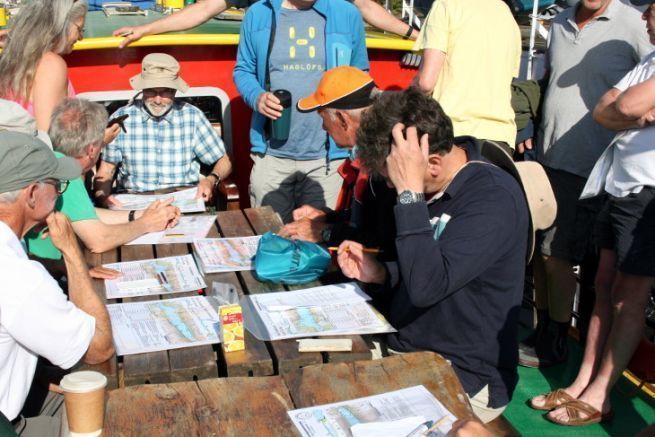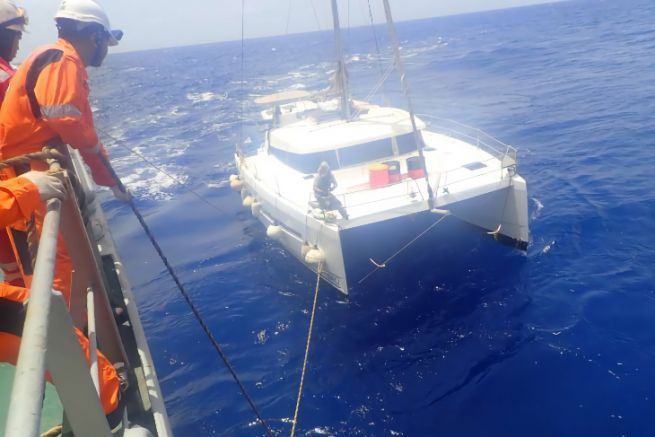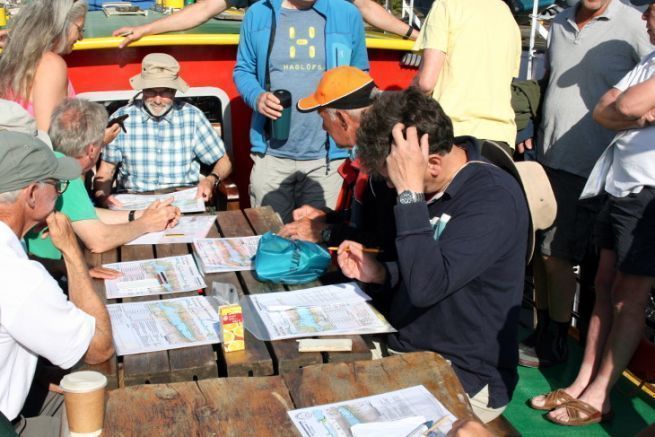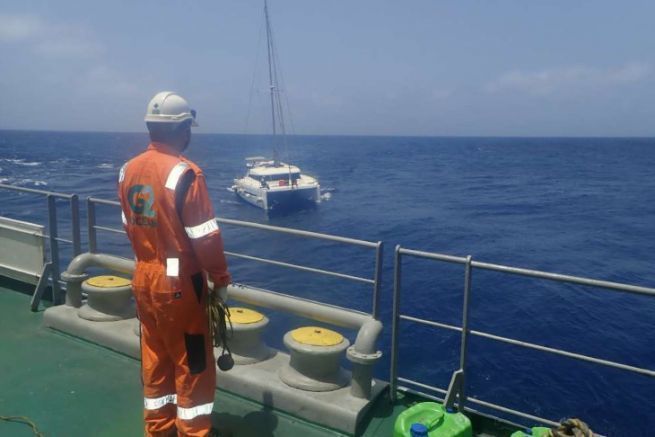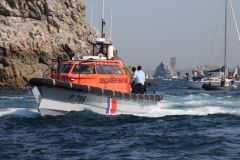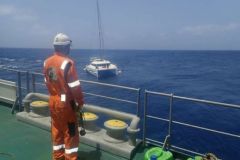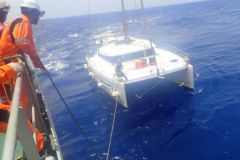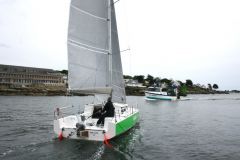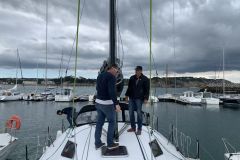The safety briefing, a must
When we go to sea for a long period of time, we imagine certain catastrophic scenarios, but far from us the idea of being able to face death. However, it is a situation that can happen and that we must face with composure and without panic. After the shock âeuros unfortunately unavoidable âeuros it is necessary to know how to act.
It is difficult to prepare for it without having experienced it. That's why Philippe wants to share his experience, through a checklist to be used before the departure and during the navigation.
"Before a transatlantic race, it is essential that the crew meet and conducts a briefing . If this happens, what do we do? You have to list everything that can happen, and write down how to react to each situation. When an accident happens, you are stunned. It's important to plan a crew meeting, to distribute the roles for each problem, to check everyone's skills: who knows how to use iridium? Who knows how to dock a freighter? I've done gliding in aviation. You plan a lot, because it goes fast. On a boat, the pace is slow. Even if you get hit, you lower the canvas, you put on the cape. You plan ahead. You don't have to think. On the other hand, when we find ourselves in the situation we experienced, we have to improvise. We have to plan for improvisation. Anticipate what might happen, and not have to think about it when it happens. After a tragedy at sea, it is also good to be followed by a marine psychologist explains Philippe.
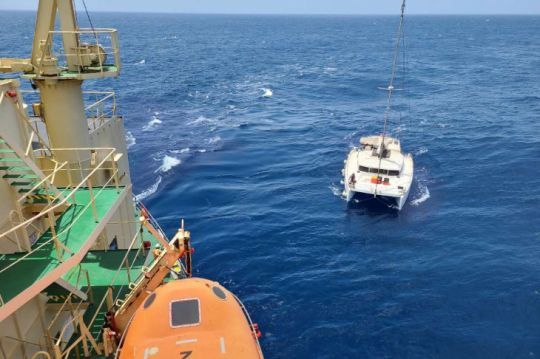
How to prepare your crossing?
Before leaving on a long trip, fill out a "Declaration of crossing" to be sent to the CROSS and inform them of any change in the program.
Like the CROSS which ensures your safety at sea, the CCMM based in Toulouse coordinates care at sea. Providing them with your medical file helps them to establish a diagnosis and to advise you on the treatment to give or the gestures to provide.
- Establish a correspondent on land who will serve as an intermediary with the Cross. Someone who will not complicate their task but will know the boat, the crew to inform them, will manage the Iridiumâeuros¦ credit
- Define the route, plot it and follow it
- Identify the prevailing winds on the road, so you know how to use them if necessary
- Possible clearances: locate and plot on the map where you can clear, depending on the position
- The ports or marinas that can receive us safely near our route
- Points of no return: the point at which one cannot return to the route one has taken
- Communications management: several people need to know how to manage the satellite phone, the problem of credit on the cardâeuros¦
- The diesel autonomy: draw a circle on the road showing the distance that can be covered with the engine
- List the possible breakdowns or problems and the attitude to have: dismasting, engine failure, watermaker failure, tear of a sail, halyard breakageâ?¦
- The necessary equipment to handle breakdowns and accidents: spare parts, mast chair and helmet, tips, pharmacy, not only the mandatory one, but a practical kit with suture thread, suture forceps, local anesthetic dental type, bandage and wooden cleats to immobilize a fractured arm or leg or inflatable drip, solid body bagâeuros¦
- Attitude towards an injury, an illness: being able to suture, put a strip, immobilize a limb. Who can do it?
- Make a clear card with the CCMM and CROSS numbers
- Prepare an English vocabulary sheet, in case of collision with a freighter: starboard, port, mooring lines, establish a back and forth, hand pump, container, what do you put the diesel in? Can you get 5 degrees off the wind, protection zone made by your boat, get on your boatâeuros¦

